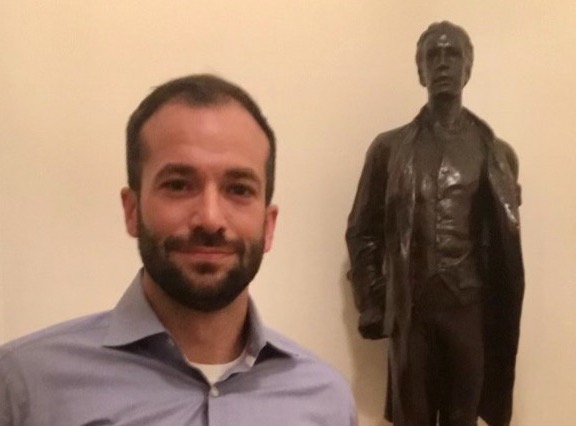Spy games in France
- Jeff Rogg

- Dec 13, 2020
- 3 min read
While Washington and his spies dueled with the British in North America, American spies were also busy in France. At the outset of the American Revolution, the revolutionaries knew they needed help to win the war. No country hated Britain more than France, which still looked to settle scores from the Seven Years' War a few decades earlier. So, the Continental Congress formed a secret organization called the Committee of Secret Correspondence. The Committee of Secret Correspondence later became the Committee for Foreign Affairs, which eventually became the State Department, so even the State Department's origins lie in intelligence.
The Committee of Secret Correspondence was a small group that included John Dickinson, Ben Franklin, and John Jay. The Committee appointed men like Arthur Lee, Silas Deane, and others to be spies in France. The goal was to secure an alliance between the colonies and France. The men had to be unofficial spies because France did not want Britain to think it was hosting American agents (who the British still considered traitors) as official diplomats. France sat on the sidelines of the American Revolution until the Battle of Saratoga, where Arnold was wounded. Only after the Battle of Saratoga, did the French officially announce an alliance with the Americans. So, until then, the American spies conducted their diplomacy with France under the table, arranging for France to supply the American revolutionaries with weapons.
The American spies in France also engaged in the type of intelligence operations that we have come to associate with "covert action," or operations in which the United States does not admit involvement. For example, Silas Deane arranged for a British man named James Atkins, also called "John the Painter," to set fire to British ships at Portsmouth.
But there were divisions among the American spies in France. Arthur Lee hated Silas Deane. Lee also did not like Ben Franklin or John Jay, who oversaw his work from their positions on the Committee of Secret Correspondence. The divisions in France reflected wider political rifts in the Continental Congress. Lee had allies like Thomas Paine in the Congress, while Deane had allies like John Jay.
It was in this context that the first "leak" of "classified" information in American history occurred. After the Committee of Secret Correspondence became the Committee for Foreign Affairs, Thomas Paine became the organization's secretary. He published one of his famous pamphlets actually titled, "Common Sense to the Public on Mr. Deane’s Affair." He used the pamphlet to accuse Deane of corruption. But Paine also revealed how France provided secret military support to the revolutionaries. The French minister to the Continental Congress protested the leak and the Continental Congress was forced to publicly rebuke Paine. Paine also lost his position as secretary to the Committee for Foreign Affairs.
Silas Deane lost far more. Deane moved around Europe in debt. He tried to restore his good name, but never good after Paine's political pamphlet. He died in 1789 and only 50 years later did a congressional investigation clear his name and award his estate $37,000. Deane was a victim of the toxic combination of politics and intelligence. This problem continues to the present day. Political divisions in Congress are often the source of intelligence leaks. At the same time, intelligence can cause further divisions between the American people when politicians use it for political purposes. But the Revolutionary War also divided the American people in another way. The Revolutionary War was in many respects a civil war between revolutionaries, who wanted independence, and loyalists, who wanted to remain colonies of Britain. The next post will discuss how domestic intelligence in wartime turns Americans against each other in ways that hurt civil liberties and fundamental freedoms.

Source: https://commons.wikimedia.org/wiki/File:Silas_Deane_-_Du_Simitier_and_B.L._Prevost.jpg




Comments